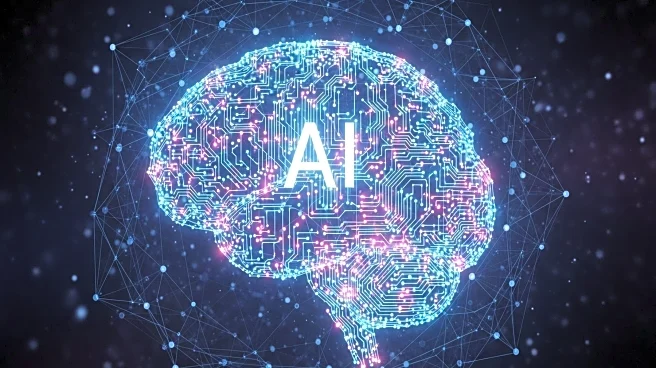What's Happening?
The use of artificial intelligence (AI) in creating intellectual property (IP) is presenting new challenges for companies and legal practitioners. AI platforms can generate logos, slogans, and photo-realistic products rapidly, raising questions about ownership and copyright. The U.S. Copyright Office has stated that works created entirely by machines cannot be copyrighted, and the U.S. Patent and Trademark Office requires human oversight in trademark and patent filings. Companies are rushing to secure brand identities, but the legal framework has not fully adapted to these technologies, leading to potential risks of infringement and legal complications.
Why It's Important?
The evolving landscape of AI-generated IP has significant implications for businesses and legal professionals. Companies may face difficulties in protecting their brand identities if AI-generated content is not legally recognized as proprietary. This could lead to increased litigation and challenges in enforcing trademarks. The legal profession must adapt to these changes, ensuring that AI-generated content does not infringe on existing IP rights. As AI continues to advance, businesses must navigate these complexities to safeguard their intellectual property and maintain competitive advantage.
What's Next?
Legal professionals and companies must collaborate to develop clear guidelines and frameworks for AI-generated IP. This includes establishing protocols for human oversight and ensuring compliance with existing IP laws. As AI technology evolves, ongoing dialogue between tech developers, legal experts, and policymakers will be crucial in addressing these challenges. Companies may need to invest in legal expertise to navigate the complexities of AI-generated IP and protect their brand identities effectively.
Beyond the Headlines
The ethical implications of AI-generated IP are significant, as the technology challenges traditional notions of authorship and ownership. Legal systems must consider the impact of AI on creativity and innovation, balancing the need for protection with the potential for technological advancement. The integration of AI in IP creation may also influence cultural and societal perceptions of originality and authenticity.









